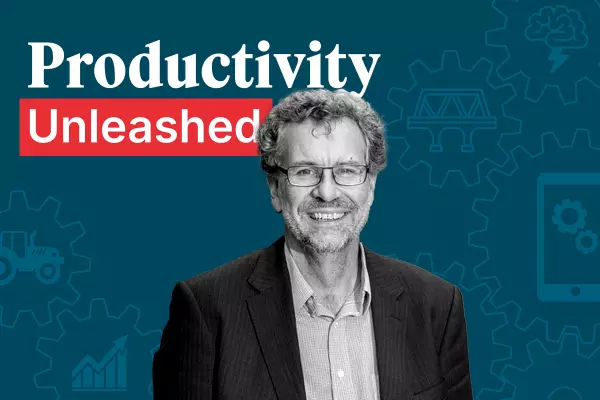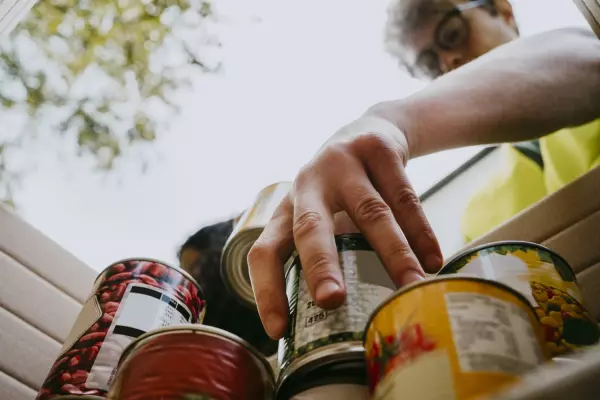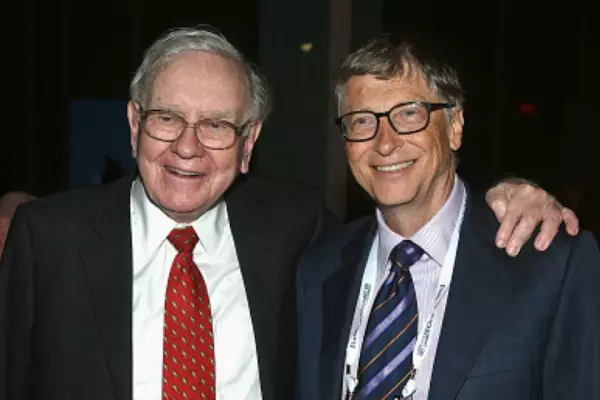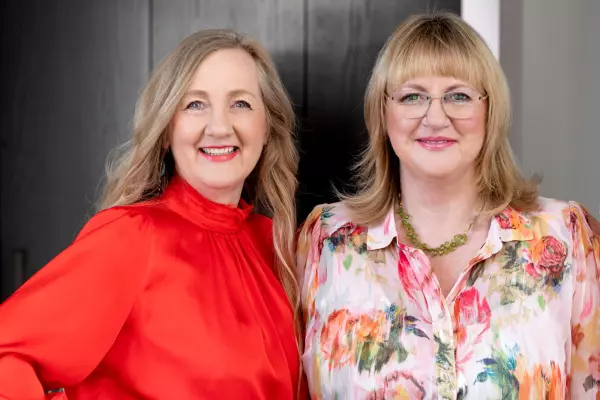Payroll giving for charities was launched with fanfare in 2010, but uptake has been low and flat-lined in recent years after an early surge.
The scheme enables employees to choose a charity from Inland Revenue’s (IRD) list of more than 32,000 organisations, and make regular donations from their pay packets.
Companies are sometimes the driving force behind payroll giving, topping up employees' donations to selected charities. Spark New Zealand matches the first $500 donated by employees each year.
In the 12 months to June 30, 2021, Spark employees donated $466,022, and the telco gave a matching $179,486.
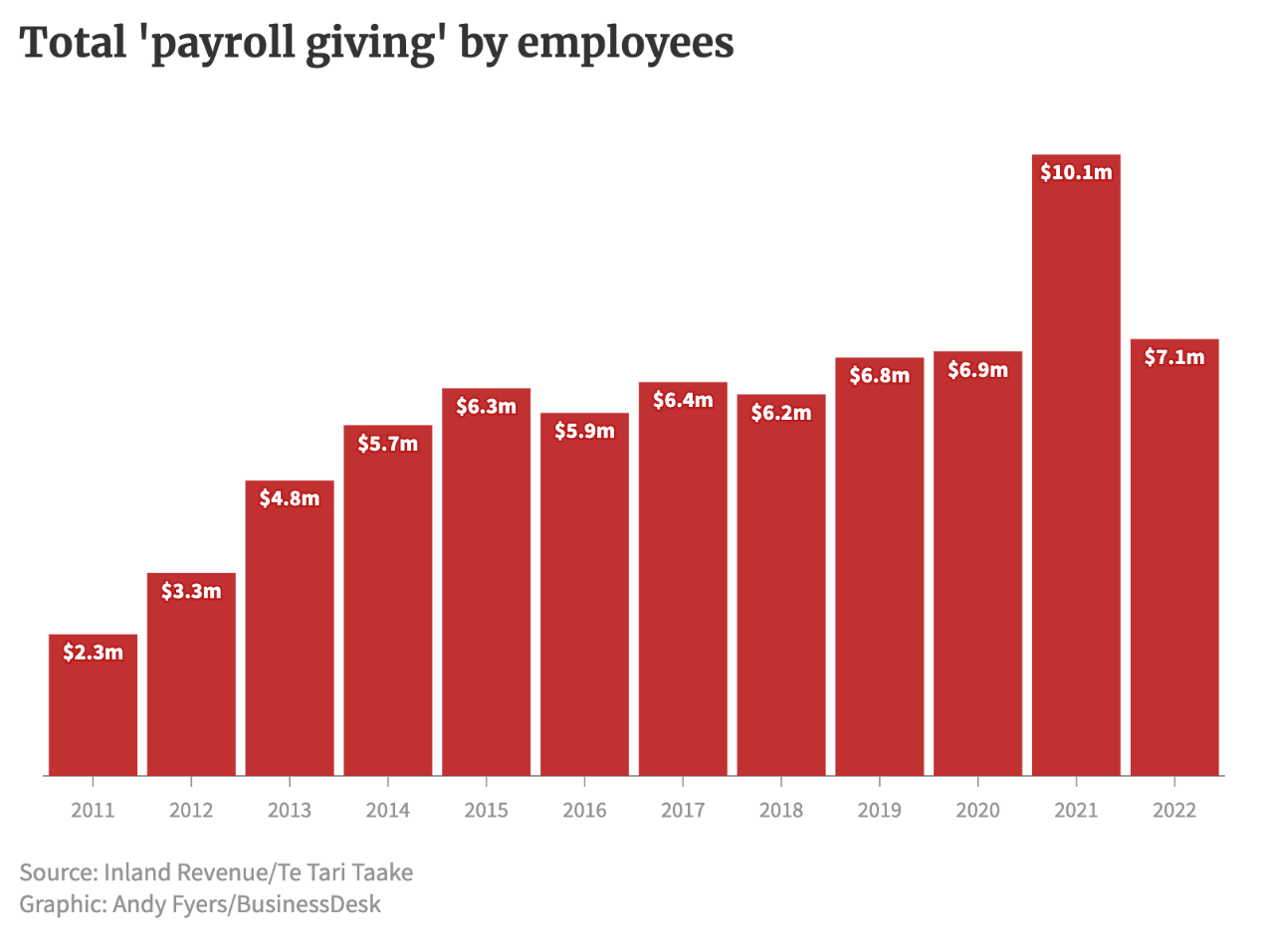
An IRD spokesperson said a 2021 spike in payroll giving to $10.10 million was due to a large one-off donation, but wouldn't say where it was from.
In fact, the number of individuals using payroll giving dropped by 2,070 people in the 12 months to 13,050, from a 2019 peak of 15,120. It has since recovered to 13,680 for the 2022 financial year.
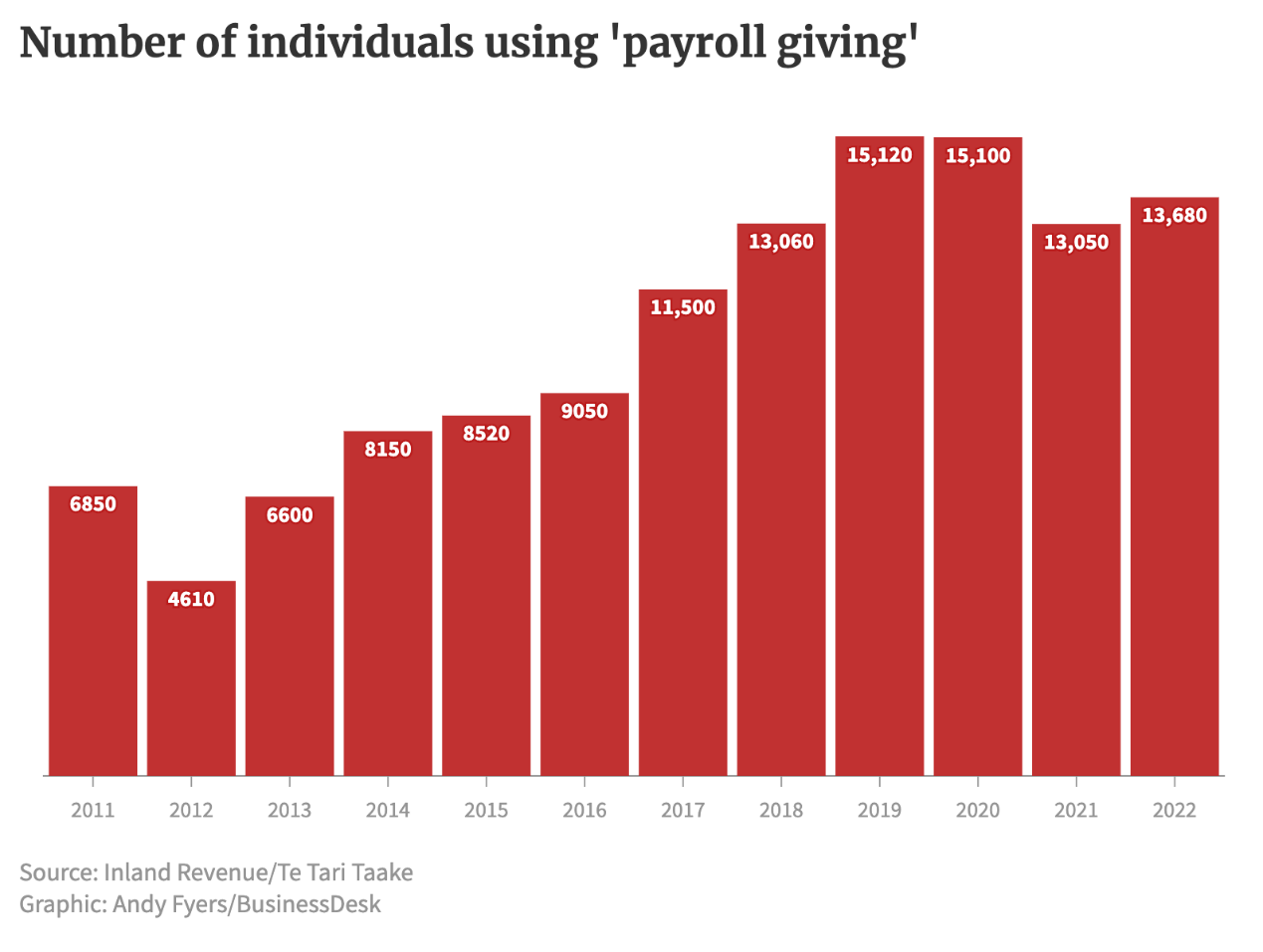
Feedback from charities and charity experts suggests the process is too cumbersome, and many employers are reluctant to do the paperwork to set it up.
This is despite the tax refund never leaving the donor’s bank account, instead of being a lump-sum refund at the end of the year.
KidsCan received $179,051 in payroll donations for the year ending December 2021 or less than 1% of its general donations. This is an improvement from $117,343 in December 2020 and $69,551 in December 2019.
The founder of the child poverty charity, Julie Chapman, said payroll giving was a valuable income stream, with employees of several dozen companies donating to KidsCan this way. “We have seen donations from this more than double in three years."
The Graeme Dingle Foundation national business development, events and partnerships manager Stephanie Brown said it had struggled to get traction on payroll giving. Like other charities contacted, she did not want to be seen as complaining. “We’re so grateful for the donations that we do get.”
Brown said payroll giving worked best when it was a business initiative. There was an added incentive when companies matched employee donations, doubling the amount given.
Whānau Āwhina Plunket’s general manager of finance technology and commercial, Matthew Kenny, said the payroll scheme was stable, but not growing. “Payroll giving provides a very small amount of the donations we receive, with three organisations nationally providing donations this way.”
St John's head of fundraising, Leanne Tiscornia, said that out of a total annual fundraising revenue of about $40m, payroll giving made up about 0.005%, equating to around $2,000.
IHC national manager of fundraising, Greg Millar, said payroll giving was something IHC had tried to promote from time to time but was a very small part of fundraising. "It’s a great idea in theory, but it can be difficult to make it work well."
The process is easier when an employer uses a payroll company such as Xero or PaySauce.
PaySauce has an app that its clients’ employees can use to select an IRD-approved charity to donate to. One-off and more occasional donation cycles are an alternative to donating every pay cycle.
Managing director Asantha Wijeyeratne said he was on a mission to increase payroll giving’s uptake.
"The biggest problem we've got with it is that there is an appalling lack of awareness. Out of 100 people, 95 people have never heard of it", he said.
Lack of awareness is a big issue, but there are other factors in play. For most payroll donors, the only option is to donate with every single pay packet, which can put many donors off.
SeniorNet NZ executive officer, Heather Newell, has 25 years' experience in fundraising. When payroll giving was launched, she was heavily involved in promoting to charities and companies. She found that corporations in general could not be bothered with the administration required.
"Every single one wanted to do it a different way, then you have to communicate it with staff, your payroll, people have to be willing to actually submit the information to IRD.
"As far as charities are concerned, they haven't got the energy to be going around talking to half a dozen major corporates, only to find that they're not on the list of approved charities – determined by the corporate."
The other problem for charities was that payroll giving anonymised the process. "You want to know if someone's giving you money on a regular basis," Newell said. "And if you can't even thank them by sending them the receipt, then that's not a good investment of your time.”








